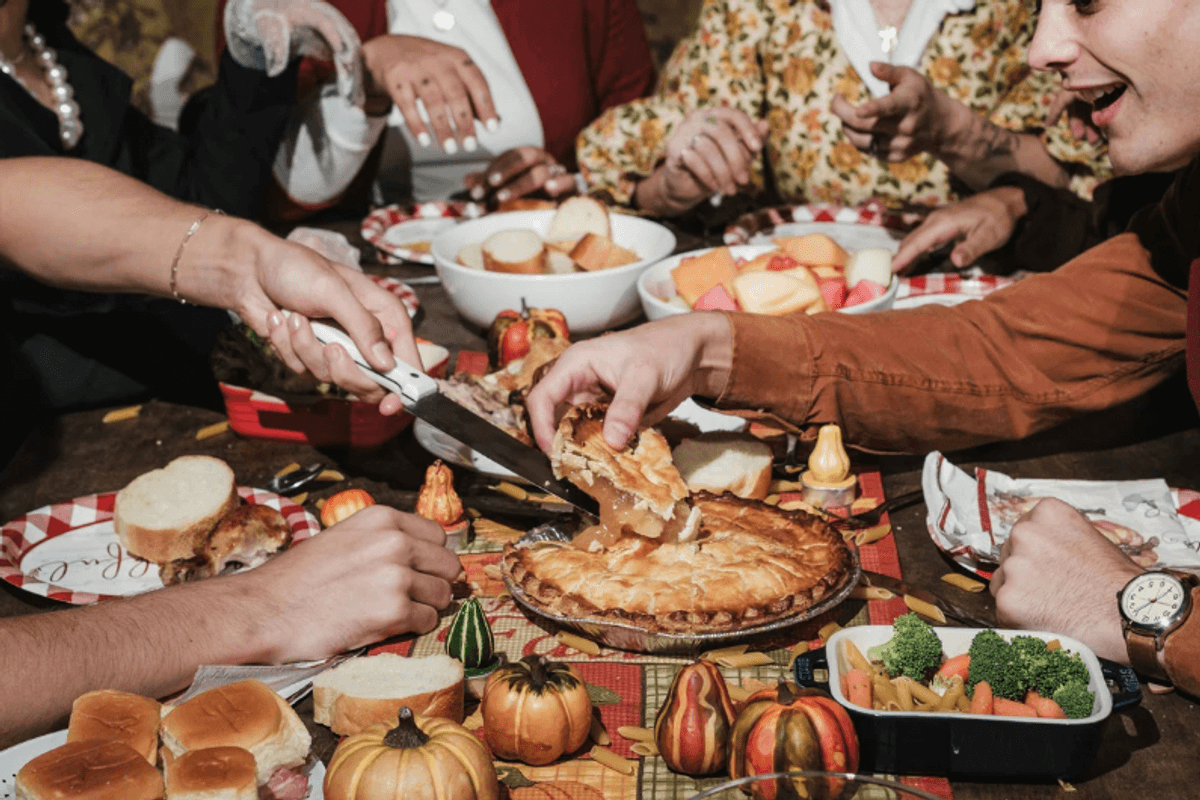Woman asks neighbor to 'turn down' Super Bowl recaps and is left stunned by his 'classy reply'
"This is how you neighbor.”

More neighbor interactions like this, please.
Unless you’re living on some vast acreage in the middle of nowhere, you’re probably going to interact with a neighbor or two. That goes double for the 44 million Americans who are apartment dwellers. And of course, not all of these interactions will be pleasant. There’s gonna be times when we, or our neighbor, don’t exactly take others’ boundaries into consideration. These moments of conflict can—and let’s face it, often do—turn into ugly, drawn out rivalries unnecessarily.
Luckily, in this case, the opposite happened. A woman recently shared online how she “had to get out of bed” at 12:30 am to ask her neighbor, who apparently had been watching Super Bowl recaps, to “turn it down.” Not only did the neighbor not get defensive about this request, he left a pretty sweet apology gift outside her door the next morning.
Along with a bottle of California Roots wine, the neighbor left a note, which read:
“Good Morning,
I got too carried away watching recaps from the Superbowl, and I didn’t realize how loud my TV was. I’m so sorry for not being considerate with the volume.”
Okay, amazing. This person took accountability and acknowledged how their actions affected someone else. Pretty stellar apology already, but he took it one step further to really make his neighbor feel heard and thought of, and leave some good vibes.
His note continued:
“In positive news, the cookies ya’ll made for Christmas were amazing! Please allow me to return the favor. -1723.”
Had to get out of bed and go ask the upstairs neighbor (whom I've never actually met) to turn it down at about 12:30 am this morning. Found this outside my door when I woke up.
byu/operarose inMadeMeSmile
Seems like the neighbor made the right call, since the OP would later write, “It's good wine! Never had this brand before, but I definitely recommend it.”
All in all, people were really impressed with how both of them handled the situation. One person congratulated them “for “spontaneously demonstrating how to be an adult. This is how all interactions should be, with each taking responsibility and no one getting butt-hurt that they were having their rights curtailed.” Another echoed,, “Awesome! And a classy reply!”
Here are a few other honorable mentions:
"This is how you neighbor.”
“So good to know that there are still decent people out there.”
“More of this is needed in the world.”
“Wouldn't it be great if everyone was more like this? I miss civilized society, I didn't realize people were still this considerate these days.”
What makes a good apology?
Do all apologies, neighbor oriented or otherwise, need to include a gift of some sort? Of course not. However, there are some key ingredients needed. Six, or six and a half(ish), to be exact, according to Marjorie Ingall and Susan McCarthy, the authors of the book Sorry, Sorry, Sorry: The Case for Good Apologies.
Those six (and a half) components, listed in order or “importance” are:
- Actually using the words “I’m sorry” or “I apologize.”
- Specifying the transgression you’re apologizing for.
- Showing you understand why your actions were harmful and hurtful, as well as what effect it had on the other person.
- Offering an explanation if needed, while avoiding making excuses
- Expressing what you are doing to ensure this situation won’t happen again.
- Offering to fix what’s broken — be it with physically damaged time (replacing a broken vase), or emotional damage (attending a loved one’s event)
- Bonus ingredient—listening to the experience of the person who was wronged.
This neighbor clearly had many, if not most, of these elements covered in his letter, which not only resolved the issue, but provided an opportunity for connection between himself and his neighbor. This is the opportunity we miss out on in refusing to apologize, or offering an insincere apology. Perhaps by swallowing our pride (in moments where it’s appropriate, obviously) we, in turn, invite the gift of connection in. Suddenly “sorry” doesn't feel so scary to say.



 A Baby Boomer garage filled with stuff.
A Baby Boomer garage filled with stuff.
 Dirty dishes left on a tableCanva
Dirty dishes left on a tableCanva Gif of overwhelmed waitress via
Gif of overwhelmed waitress via 


